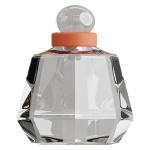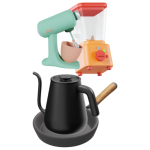This peer support can be invaluable in maintaining long-term recovery and preventing relapse. Sober https://www.inkl.com/news/sober-house-rules-a-comprehensive-overview living homes can be beneficial for individuals who recognize the need for a structured and accountable environment as they navigate early recovery. These homes offer a safe and supportive space where residents can receive peer support, guidance, and encouragement from fellow residents who are also on a similar recovery journey. Despite the positive outcomes, sober living homes are not without their challenges. Residents often face limitations on privacy and could experience conflicts with housemates due to shared living spaces.
Peer support and the role of house manager
- In addition to the aforementioned rules, certain types of living homes may have more specific regulations that cater to the unique needs of their resident population.
- Residents are usually required to submit to random drug testing, maintain a curfew, and fulfill household responsibilities like chores to foster accountability.
- They provide a structured and supportive environment essential for individuals transitioning from more intensive treatment phases to routine daily living without substance use.
- Residents naturally tend to keep each other accountable, further cementing the importance of following the rules.
- An example is the Substance Abuse and Mental Health Services Administration (SAMHSA), which offers grants to organizations that provide addiction treatment and recovery services.
- Halfway houses can be government funded or run by private organizations that receive government grants.
Given the responsibility of covering these costs, many residents often seek part-time work or rely on financial assistance to maintain their living arrangements while focusing on recovery. This focus on voluntary participation is what makes sober living homes an appealing option for many seeking to maintain sobriety. Meeting with city or county officials early in the process can clarify regulatory requirements and provide insight into the approval process.
Community-Specific Rules
It is against the patients’ expectations that every home can be different from their liking; some may be a haven where alcohol and drugs are prohibited. The patient is always allowed to choose the level of support that is good for them. The sober living house will also provide a support contact if the patients have a temptation to go back to a former life, which is crucial in a manner that the patient is expected to face. To enable the whole process to run smoothly, the patients need to abide by the house rules, which means that a slight mistake they are kicked out to protect the sobriety of other patients.
The Importance of Self-Care in Addiction Recovery
The transition to a sober life is a profound transformation that involves redefining one’s identity, behaviors, and social networks. Among the critical supports for this transformation are sober living homes, which offer a structured environment that reinforces the habits and routines essential for long-term sobriety. These homes are not merely residences but stepping stones in the broader journey of recovery. They foster a sense of community, accountability, and mutual support that can make the difference between succumbing to temptation and achieving lasting change. Participation in sober living community news and updates can also keep individuals informed and motivated throughout their journey.
The Importance of Celebrating Small Wins in Recovery
Sober living rules place an emphasis on mutual respect, accountability, and skill-building, serving as a framework for both individual and collective success. Sober living rules regulations are crucial in creating a harmonious living space, making it easier for residents to focus on their recovery goals. With a decade of experience in producing content for drug rehabilitation centers, Ben has developed a deep understanding of the challenges and triumphs in this sphere. In 2019, he founded the video blog “A String Of Hope,” a platform that has become a beacon of inspiration and positive change for individuals seeking recovery, reaching millions worldwide. As someone who is personally journeying through recovery, Ben’s work is not only rooted in professional knowledge but also enriched by his own experiences. His commitment to sharing stories of hope and resilience has established him as a credible and respected figure in the addiction treatment community.
Headed Home for the Holidays and Staying Clean
It’s important to find a good fit and strong support when navigating life in the vulnerable stage of early recovery. Residents may not possess drugs sober house or alcohol, and their visitors – typically family and close friends – may not bring these substances in, either. Under recently updated NARR standards, certified sober living homes are encouraged to provide secure storage for medications and facilitate access to MAT as prescribed. These homes are also encouraged to maintain a supply of naloxone and ensure staff are trained in overdose reversal, supporting a safer recovery environment. To keep residents safe, all successful sober homes have rules and regulations that you’re required to follow. While rules may vary, we’re going to discuss the general guidelines most homes require.
When staying at a facility with other people who want to become free of alcohol addiction or drug abuse, one can fully recover by following the guidelines. A well-structured environment has a beneficial impact on a person’s well-being, as it reduces stress and anxiety. Sober living programs may have slightly different ways of operating, but most are modeled on a self-help, peer-support philosophy.
- They often serve as mentors or guides, having typically walked the path of recovery themselves.
- These rules are not just arbitrary; they are rooted in evidence-based practices known to aid in sustained recovery.
- Presenting a clear plan for the sober living home, including safety measures and community benefits, can help build trust and cooperation.
- To enable the whole process to run smoothly, the patients need to abide by the house rules, which means that a slight mistake they are kicked out to protect the sobriety of other patients.
- Choosing a sober living home is ideal for those exiting rehab who need structure to maintain sobriety.
- Sober living houses are also called sober residences, recovery houses, and recovery residences, among other names.
Therefore, the living sober home needs to offer a wide range of benefits, which will not alleviate the patients’ deviating back to their old ways through a moderately controlled environment. Ethos Structured Sober Living is an all male community in recovery located in the heart of West Los Angeles. Our primary purpose is to foster long-term sobriety through the cultivation of accountability, camaraderie, & character development.
Chores are equally important, as they ensure the cleanliness and functionality of the shared living space. Assigning tasks and responsibilities encourages residents to take ownership of their environment, promoting a sense of pride and accomplishment. Moreover, engaging in routine chores can serve as a therapeutic activity, offering structure and normalcy to daily life. Among the benefits of staying in a sober living- home is the friendships that will help you reinforce the feeling and need to transition from substance and alcohol abuse to normal life. This connection will help you transition carefully without sliding back to your former life due to loneliness and lack of support in the real world.













 School Item
School Item
 Bag
Bag Jewelry
Jewelry Footwear
Footwear


 Hair Extension
Hair Extension Perfume
Perfume


 Appliance
Appliance